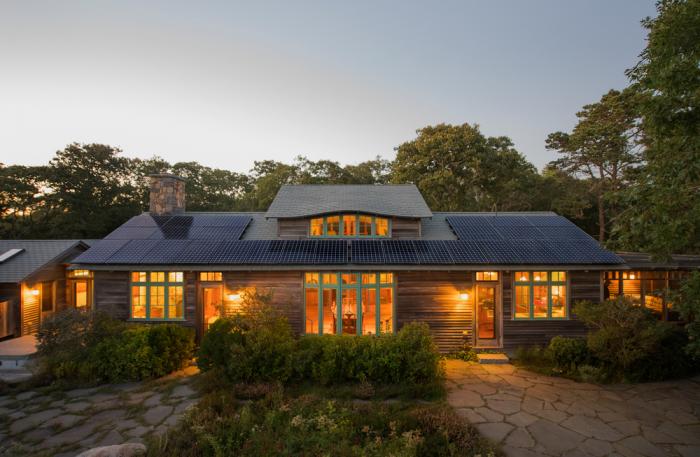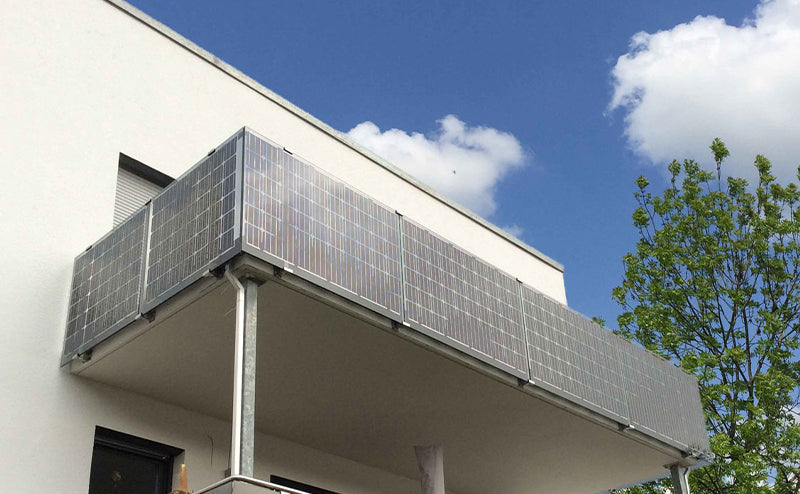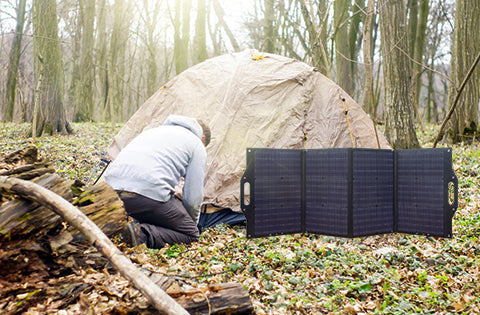
Living off-grid, better defined as not having a dependence on public utilities such as electricity, sounds appealing for a lot of reasons. The idea of being self-sufficient, powering your own home with solar energy and maybe even building that home with your own two hands can sound like an appealing challenge for freedom chasers.
Maybe you’ve thought about it many times before, could you really hack it out there alone in the wild? Exactly how feasible is it to live without the electrical grid using solar energy as your one and only power source?
Whether you dream of that cabin in the woods or just want to exert your energy independence over your local utility, going off grid is possible but that doesn’t mean that it’s beneficial. For starters, being off grid takes a lot of advance planning, not to mention that it’s incredibly expensive to get started. Plus, you’ll need to have backup energy sources on hand, particularly if you’re not ready to let go of your power-hungry devices.
When it comes down to the question of whether solarparts solar panels have the capability to power an off grid project, the answer is easy. Yes, they most certainly do. With the most efficient solar panels on the market, a well-designed solarparts solar system can handle any energy need that pops up. But even with this in mind, we’ve actually found that there are some pretty good reasons to stay connected to the grid.
First, staying on the grid enables you to support your local community. solarparts has the amazing benefit of helping reduce strain on the electrical grid when demand rises during peak times or extreme weather hits. By generating your own clean power and even sending excess energy back to the utility in some cases, you are creating a more reliable electrical grid.
Virtual power plants (VPP) are another example of homeowners using their solar systems for the greater good of their community. VPPs come into play when energy demand is higher than the available amount. When this occurs, home batteries that are connected to the VPP trade their stored electricity to the electrical grid to help meet the demand. Eversource, National Grid, and Cape Light Compact customers in Massachusetts, Rhode Island, and Connecticut are invited to participate where eligible.
The reliability of the electrical grid has become an increasing concern for many homeowners as power outages become more commonplace. That’s why the popularity of home solar systems and VPPs has been on the rise. In the 2021 Energy Sense Index conducted last year, solarparts discovered that two out of every five homeowners worry about power outages every month of the year. This has led homeowners to seek out solutions, a call that solar + storage has answered. This leads us to our next point.
Second, solar + storage gives you the energy independence you’ve been searching for without all of the unwanted tasks that come with actually being off grid. With the solarparts solarparts™ Storage system, you can back up enough power for extended periods of time. Depending on your system size, solarparts can power your whole home during a power outage. When the utility schedules its next rolling blackout, you can live in comfort using home appliances, keeping the lights on and even charging your electric vehicle.
The third reason for staying connected to the grid is probably the most pragmatic. Staying on the grid can help you save more money. Many solar homeowners have the option to take advantage of net energy metering (NEM), a state provided incentive that gives homeowners a credit for any excess energy they send back to the grid. When homeowners produce more clean energy than they consume in a given day, this power can be sent back to the utility. SunPower’s high-efficiency solar panels help homeowners maximize their solar production, leading to big savings on their utility bills. You can find out what NEM incentives your state provides by visiting DSIRE’s website.
When it comes down to it, local utility companies provide a valuable service to customers in times of critical need. Homeowners and utilities can and should collaborate to create a more reliable, decentralized grid. And solar + energy storage is making that possible right now.



